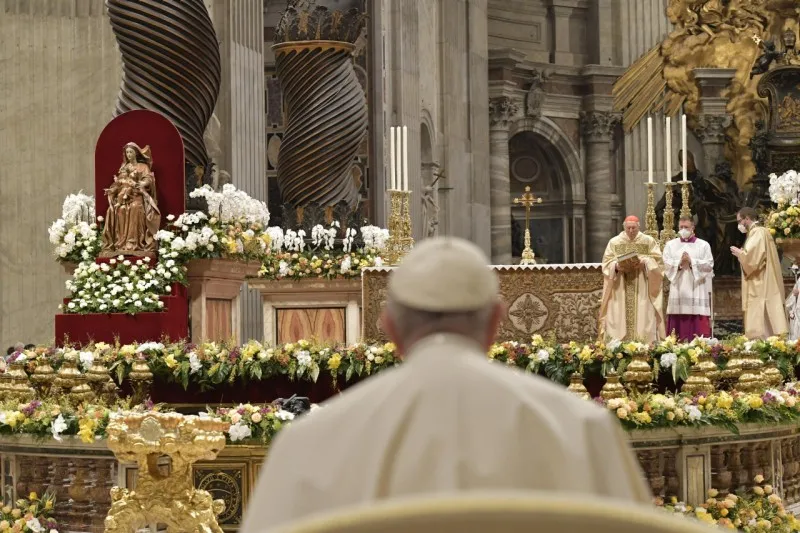
Vatican City, Sep 27, 2017 / 03:14 am (CNA/EWTN News).- On Wednesday Pope Francis spoke about the enemies of hope that often lead us into discouragement and melancholy, and urged Christians to fight these temptations with the power of prayer.
One of these enemies, he said, is the “demon of noon,” which “wears us out with a busy life just as the sun rises,” but which “surprises us when we are least expecting it.” With this enemy, he said, “the days become dull and boring,” and nothing seems worthy of the effort of “hard work.”
“To have an empty soul is the worst hindrance to hope,” he said. “It is a risk from which no one can be said to be excluded; because to be tempted against hope can happen even when you walk the path of Christian life.”
“That’s why it is important to keep our hearts in opposition to the temptations of unhappiness, which certainly do not come from God,” he said. “And where our forces appear weak and the battle against anguish particularly tough, we can always turn to the name of Jesus.”
We can repeat this simple prayer, he said, found in the Gospels, and prayed by many Christians, which says: “‘Lord Jesus Christ, Son of the living God, have mercy on me a sinner!’ A beautiful prayer.”
Speaking to those gathered for the weekly general audience Sept. 27, the Pope continued his catechesis on the theological virtue of hope.
He started by recalling the myth of Pandora’s Box, which tells the story of a curious woman who opens a box she’s been forbidden to open.
When she does so, all of the evils of the world are then released. But at the end of the story, there is a “glimmer of light,” the Pope said, because after all of the terrible things pour out of the box, Pandora spies one last thing remaining inside: hope.
“This myth tells us why it is so important for humanity to hope. It is not true that ‘as long as there is life there is hope,’ as it is commonly said. But it is the opposite: it is hope that sustains life, which protects, preserves and grows it,” he said.
The Pope also evoked the words of the French poet Charles Péguy, whose poem “The Portico of the Mystery of the Second Virtue,” is a lengthy reflection on hope. In his poem, he says that God is not astonished so much by the faith of human beings, or by their charity, but by their hope.
Quoting from a poem of Péguy, Francis continued: “Those poor children who see how things are and who believe that it will be better in the morning.”
“The image of the poet,” he said, “recalls the faces of so many people who are passing through this world – peasants, poor workers, migrants, in search of a better future…They fought for their children, they fought in hope.”
Hope is not a virtue of people with full stomachs, he continued. That is why, since the beginning, the poor are the first bearers of hope. Even at Christ’s birth the poor shepherds were the first messengers, Francis said.
Sometimes, growing up with everything you could want or need in life can actually be a misfortune, he said, because then you are not taught the virtues of expectation and patience built through hard work and effort.
The person who has been given everything may look young, but actually “autumn has already fallen on his heart,” he said.
Instead, hope is the “thrust in the heart” that encourages people to change, or to leave home to find a better situation in some cases. It is the push to welcome others, “the desire to meet, to know, to dialogue,” he said.
Hope also gives us the courage to share the journey of Christian life, he said, adding that“we are not afraid to share the trip! We are not afraid! We are not afraid to share hope!”
If you value the news and views Catholic World Report provides, please consider donating to support our efforts. Your contribution will help us continue to make CWR available to all readers worldwide for free, without a subscription. Thank you for your generosity!
Click here for more information on donating to CWR. Click here to sign up for our newsletter.





Leave a Reply